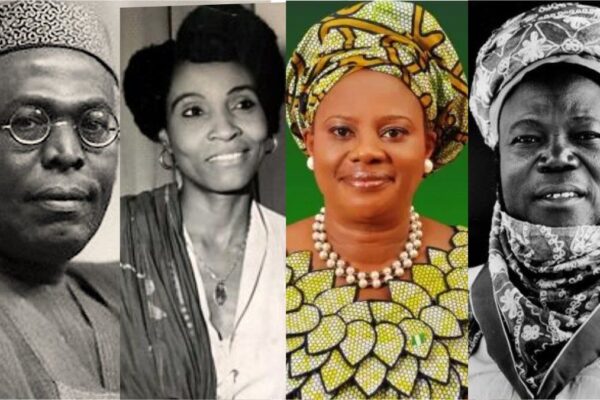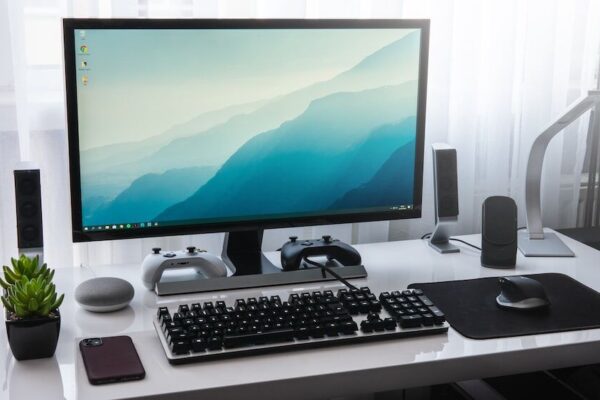Although the 2023 general election is five months away, candidates contesting for various elective offices have begun their campaigns, despite the ban on campaigning not yet lifted by the Independent National Electoral Commission (INEC). Two of the most important activities during the campaigning period are the candidates’ consultations with their fellow politicians, irrespective of the political divide, and their interactions with the electorate/citizens of a country and/or constituency.
Nigerian politicians, especially the presidential candidates, seemed to have upped their campaign strategy by holding meetings with their fellow politicians, but they were held outside the country. Specifically, Atiku Abubakar, the presidential candidate of the Peoples Democratic Party (PDP), the main opposition party, had a caucus meeting with some members of his party, including Nyesom Wike, Governor of Rivers State, who is deemed to be the “enfant terrible” of the party and considered by others as the “kingmaker” in the 2023 polls, in London, the British capital.

Similarly, Bola Ahmed Tinubu, the presidential candidate of the All Progressives Congress (APC), the ruling party, also met with Governor Wike in the same London, as confirmed by Kabir Masari, the former placeholder for APC vice presidential position, in August 2022. Similarly, Peter Obi, the presidential candidate of the Labour Party, considered to be a mesmerising third force in the Nigerian political spectrum, also looked to abroad as his political sanctuary, as he held a meeting with Wike (again), former president Olusegun Obasanjo and others in London.
ALSO READ: Top 4 parties with political structures in Nigeria

The LP presidential candidate then held several engagements with Nigerians in London, Germany, Italy, Canada and the United States of America.
I am profoundly grateful to my fellow Nigerians whom I met and interacted with in Frankfurt, Rome, Toronto, Los Angeles, Houston, Charlotte, Washington D.C, Atlanta and New York. Your warmth and collective graciousness has been elating; pic.twitter.com/5bQqXIJMfb
— Peter Obi (@PeterObi) September 5, 2022
While Section 41(1) of the 1999 constitution (as amended) guarantees the right of freedom of movement to all citizens, the meetings held by politicians abroad, especially by presidential candidates, have been rightfully questioned. Although politicians insist on confidentiality and protection to protect the details of their horse trading from leaking, holding these meetings outside of Nigeria cast the country in a negative light.
ALSO READ: How defection shapes politics in Nigeria
By having these meetings abroad, these presidential candidates have portrayed Nigeria – the same country they aspire to govern – as an insecure, unsafe country that lacks a conducive environment and decrepit facilities for them to hold their meetings in the secrecy they desire. This act is ironic because the three leading presidential candidates mentioned in this piece played pivotal roles in their states and the country at one point in time in this Fourth Republic.
Atiku was the vice president of the country for eight years (1999-2007), Tinubu was the Lagos State governor for eight years (1999-2007), and Obi was also the Anambra State governor for eight years (2006-2014). Is this trio of eminent Nigerians saying that there are no suitable places in their states of Adamawa, Lagos and Anambra, or that there is no venue in the Federal Capital Territory (FCT) or any other part of the country that is safe and secure for them to hold their meeting?
There is also the issue of junketing. While none of the aforementioned presidential candidates currently hold political offices, they have had in their entourage or met with elected governors abroad. These elected officials include Wike (Rivers State), Samuel Ortom (Benue State), Okezie Ikpeazu (Abia State), and Seyi Makinde (Oyo State). The possibility that these state governors attended these meetings outside of the country at public expense, rather than with their funds, is extremely high.
Such expenses are quite unnecessary, particularly when Nigerians lament the state of the economy, with inflation currently standing at 19.64 per cent and the quality of services and personal income of individuals not getting any better. The monies expended for these trips by the stated governors could, in reality, be of good use in critical sectors of their states’ economies, especially to attend to the plights of Nigerian workers and pensioners whose salaries and pensions have not been paid for a long time. It could have also been invested in infrastructure programmes in these states, which need public infrastructure.
Furthermore, the presidential candidates could have spent the money they shelled out for their trips to generate income for businesses in Nigeria rather than fuelling an outflow of capital.
Another indicator that these meetings have bared is that these politicians are not necessarily in touch and do not care about the Nigerian people. Although Obi will insist that he met with Nigerians in the diaspora at his engagements abroad, Nigerian citizens residing outside of the country are, by law, not permitted to vote in elections.
ALSO READ: How the Abacha loot has been returned and its impact on Nigeria
The only way they can exercise their franchise is to return to the country if they are registered voters and participate in the electoral process. Although it is only anecdotal statistics that are available, the data shows that the percentage of Nigerians in the diaspora who vote in the country’s elections is not up to 50 per cent. So, while Nigerians abroad provide heavy foreign remittances and could be influential, they do not, however, form the core of the electorate.

Speculations are rife that the other main presidential candidates will travel abroad soon. So, one begins to wonder why there is much attention on diaspora Nigerians by the candidates when at best such Nigerians can only mobilise their relatives, friends, and, probably, their business associates to vote for a particular candidate or political party.
Even though there is a lacuna in the 2022 Electoral Act concerning the soliciting of funds by political candidates, as the law is silent on them, the law, however, forbids political parties from receiving donations from Nigerians in the diaspora. Except the candidates aim to circumvent the law, they cannot have any financial backing from Nigerians abroad, meaning that they will have a limited role to play during the campaigning period and the election day proper.
Therefore, such periods spent in the diaspora by the presidential candidates should have been used to address Nigerians back home, especially those who will be at the polling centres on 25 February 2023. While one is not incognizant that official campaigning is yet to begin, the candidates and their surrogates have appeared on television and radio for interviews and/or taken to their social media accounts to discuss various subject matters regarding their candidacy, campaign, and the election generally.
Yet, five months before the elections, none of the major candidates has fully released their manifestoes or policy guides to Nigerians, detailing how they plan to handle various aspects of the country, especially the economy, security, infrastructure, employment, food sufficiency and power generation and distribution. What they have done, so far, is to release details about their plans in trinkets. At this moment, Nigerians deserve to know the plans of those soliciting their votes to enable them to make an informed decision at the polling centre on election day.
National pride is also at stake for Nigeria. Many Nigerians recall with despair the actions of the British Imperial Empire on the country during colonialism, which had (and still has) a catastrophic impact on the people, culture and tradition, and resources, and has severely hampered the development of the country to date.
Yet, these presidential candidates appear to be giving political clout to our former coloniser by going to its capital, the same place where actions were deliberated and taken against the interest of Nigerians, to hold their so-called strategic meetings. Holding meetings in the same place that brought untold pain to Nigerians for years subtly justifies the neo-colonial tendencies that have been at play in the country since independence in 1960.
This jamboree by our politicians, particularly the presidential candidates, in 2022 leaves a lot more to be desired.
ALSO READ: Why electoral violence festers and how it affects elections in Nigeria








